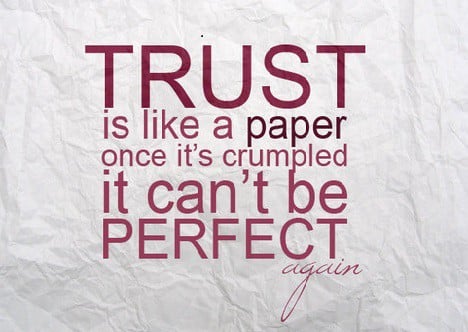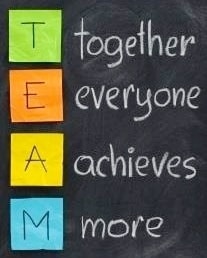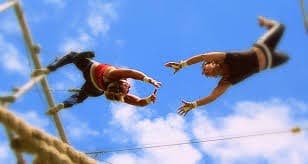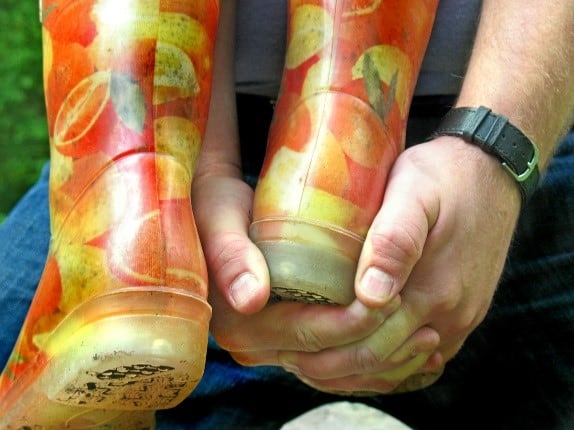RUSSIAN ROULETTE for Businesses: How Large Companies can Lose Their Trust and Reputation by Taking Some Unnecessary Risks
The Importance of Cherishing TRUST in Business:
If we observe the predicaments steaming in the business world today TRUST is going to be one of the words this year – trust, and more pertinently lack of it, inside and outside organisations. Emotional about the real life examples that have been revolving around the Volkswagen emissions and The Air France redundancy scandals recently, it felt almost obligatory to write this article about the importance of trust for the organisations’ reputation and the unnecessary risks some businesses tend to take, destroying a lifetime of work in just one day.
If I were to ask you: ‘do you think trust in organisations is important?’ I am certain your answer will be: ‘Well, obviously, yes!’ But the real question we all seek the answer for is: ‘if trust in organisations is very important, then why do some businesses today take it for granted?’ In this case, the VW emissions scandal, Unilever waste related disgrace and the Air France redundancy outrage are perfect examples of how some companies play Russian Roulette and lose their trust and reputation due to taking such unnecessary risks.
Taking Trust for Granted
It is interesting how often we talk about “trust” as if it were a singular thing; it’s not! Trust is a relationship established between a trustor and a trustee. As the old saying goes – it takes two to tango, and two to trust. This is true not only of interpersonal trust, but of trust between people and institutions. To put it simply the role of the trustor is to take risks and the role of the trustee is to be trustworthy. Easy to follow, one would think. Alas, quite often it feels that organisations today need to be reminded how much trust we, as individuals, put into them every day, and how much this invisible liaison between us really matters to their brand’s reputation. Trust and reputation are very much inter-related. We trust those who have a trustworthy reputation, and we don’t trust those who are known to be untrustworthy. If we use the example of VW’s current emissions scandal it’s clear that the company’s disgrace was triggered by the loss of trust in VW as a business and as a brand. “We’ve totally screwed up,” said VW America boss Michael Horn recently, while the group’s chief executive at the time, Martin Winterkorn, said his company had “broken the trust of our customers and the public” and that ‘My most urgent task is to win back trust for the Volkswagen Group – by leaving no stone unturned.”1
Even though the 21st century business world has finally reached the conclusion that the leadership weapon of the future is trust, still, we find that many leaders today need to educate themselves about the importance of trust in the business world and if lost, the impact it may have on the organisation. It seems that just like VW, Air France has also failed to measure the impact of lost trust on their business when earlier this month they decided to make 3,000 job cuts at the airline and quite frankly forgot to give their devoted employees a ‘heads up.’2 As an organisation, it is crucial to take a step back every once in a while and monitor the rapidly changing business world that quickly went from vertical to horizontal; flat, if you prefer. Or virtual. Business processes now can easily be sliced and diced, reconfigured and contracted out. The boundaries separating them from their employees, their suppliers, and even their competitors have become porous and fragile. In such a world the key success factor becomes the ability to persuade someone over whom you have no power to collaborate with you in pursuit of a common mission. Sending a leader into today’s world armed with only the vertical, power-based skills of the past is like sending a Civil War soldier into modern battle. Consequently, it comes with no surprise that the main reason behind Volkswagens’ tattered reputation, in the eyes of many, was caused by one simple thing – Senior Leadership decided to take many unnecessary risks, abusing the weight of trust and misleading the loyal customers in the process. Their ambiguous business practice can almost be compared to buying a very expensive designer sweater, which, as you later discover, is made of 70% polyester and only 30% cotton. Disappointing? We think YES!
Losing trust can create a deeper hole in the organisations’ reputation then it can ever be imagined. This hole unfortunately can become almost invisible to senior management due to many reasons. As Chuck Fitzgerald, vice president of HR for DFB Pharmaceuticals, Inc said: – “those of us in senior management often get so many projects going that we forget about or don’t pay as much attention to the promises we’ve made.” This is no excuse and it is quite shocking for some companies to still use it as such.
We would like to shout out to our readers: ‘Can you recognise such a Leader in you?’
- If and hopefully ‘NO’ then we applaud you.
- If ‘MAYBE’ then use this article as a light guide, which could aid many ambitious front-runners such as you, in answering the following questions:
- How many potentially reputation-damaging risks are you sitting on currently?
- How big is that risk?
- And, are you ready to pay for the consequences?
- If ‘YES’ then please read on, in a hope that you will treat this article as a wakeup call.
The Real Value of Lost Trust
The economic value of trust may seem intangible to many, but this is until one assesses the high cost of trust lost. The expert below from BBC demonstrates the real financial impact that dishonesty, lack of transparency, and therefore lack of trust can have on an organisation’s bottom line. With VW recalling almost 500,000 cars in the US alone, it has set aside €6.5bn (£4.7bn) to cover costs. But that’s unlikely to be the end of the financial impact. The EPA has the power to fine a company up to $37,500 for each vehicle that breaches standards – a maximum fine of about $18bn. And then, or course, there is the cost of fixing all the cars.3
Most importantly a legal action from consumers and shareholders may follow, and there is speculation that the US Justice Department will launch a criminal probe. What started in the US has now spread to a growing number of countries. The UK, Italy, France, South Korea, Canada and, of course, Germany, are all opening investigations. Whatever the VW will try to do to avoid it, their case looks almost hopeless as the company is standing at the brink of a class action, which will very soon resemble to the latest Payment Protection Insurance (PPI) outrage. This example alone should be enough to make leaders ask themselves: ‘is the risk we are about to take worth taking? And if yes, are we ready for the consequences?’
How Can Organisations Gain TRUST Back?
It is imperative to determine how the organisation can recover and rebuild the reputation that had been tattered due to a loss of trust. But we must not forget that losing trust is just like a crumbled up piece of paper; you can try to fix it, but it will never be the same. As a business you must nurture your reputation and do all in your power to preserve trust amongst your employees, stakeholders and customers. But in case you have stepped in the same shoes as Volkswagen and/or Air France recently had, accidentally we hope, then it would do your business some good to:
Admit your mistakes – ‘Admitting your weaknesses does not diminish your strengths; it shows your courage.’ Erin Andrews
Have clear communication with your people – ‘Communication must be HOT. That’s Honest, Open and Two-way.’ Dan Oswald (President of Legal and Business Resources on management Leadership)
Practice thoughtful transparency – ‘Honest Leaders create honest companies; manipulative leaders create manipulative companies.’ John Frost
Contribute gratitude – ‘Gratitude opens the door to… the power, the wisdom, the creativity of the universe.’ Deepak Chopra (Author and Public Speaker)
Try again – ‘Success is not final, failure is not fatal: it is the courage to continue that counts.’ Winston Churchill
Increasing Organisational TRUST
At Connectwell we’ve seen through experience how ambitious leaders can cultivate trust within their organisations. ‘It takes many good deeds to build a good reputation, and only one bad one to lose it.’ Benjamin Franklin. But simply because you are a large organisation does not mean that I need to or have to trust you. Trust can’t be bought (thank goodness). It has to be earned.
‘Leaders, try and take the first step in extending trust to those you lead!’ The willingness to take risks is the genesis of creativity and innovation, without which organisations today will greatly suffer. One could argue that trust is a risky business. Whether or not to trust another person is viewed as similar to placing a risky bet on the trustworthiness of an anonymous counterpart in a situation where both can gain from reciprocal exchange. But we must not forget the most important factor – without trust business is a dangerous undertaking
‘Leaders, it is ok to make a mistake, as long as you learn from it.’ Let us all close our eyes and remember our first jobs, whether it was at the world’s largest business center or a part time job at the local fish and chip shop. One way or another it was our first job and nervous through to our core we all wanted to do well. Now imagine that on the first day of your first job you make a mistake, which pushes your manager into fits of shouts: “What were you thinking? Is this the reason we have hired you?” Not exactly the kind of leadership that encourages you to take further risks, is it? Compare that with a comeback of “So what do you think went wrong? What will you do differently next time?” We all call this a “learning moment,” where planning and execution come together. ‘Try, fail, learn, smile and carry on.’ Steve Bernard.
‘Leaders, remember that your people want to know your values, beliefs, and what motivates your decisions and actions!’ Leaders should create a culture of trust and openness by making sure they engage in transparent business practices. The more open you are with people the more they will trust and value you, because it’s simple – you, as a business, have nothing to hide; hopefully!
‘Leaders, do try and share the information.’ If you do not share the information people will make up their own version of the truth. This will then lead to rumors, which can result in people questioning your leadership decisions and losing focus on the mission at hand.
For organisations to function at all, there has to be a general assumption of trust that partners, staff, suppliers, customers and the authorities will do the right thing by each other. Those who are suspicious of everyone have to limit their ambitions, because they assume deception is prevalent. Trust is important. In fact it is more than important. It is imperative. Great organisations are built on trust. As Samuel Johnson said: ‘It is … happier to be sometimes cheated than not to trust.’
An article by Sophie J Khinch
1 http://www.bbc.co.uk/news/business-34324772
3 http://www.bbc.co.uk/news/business-34324772








